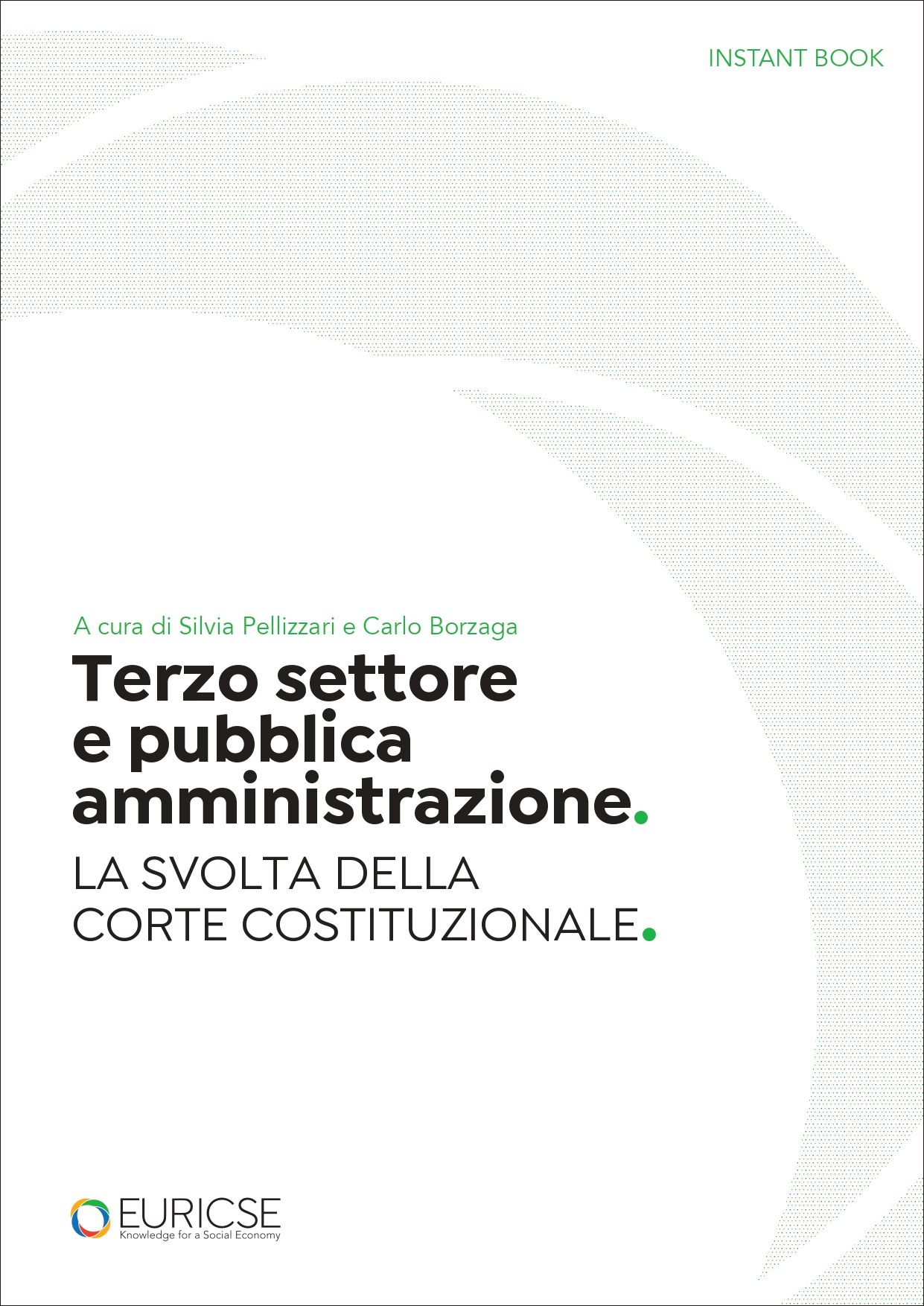Third sector and public administration. The turning point of the Constitutional Court
The ruling of the Constitutional Court 131 of 2020, published on 1 July, represents a turning point in the relations between the public administration and the third sector, as it gives full recognition to article 55 of the Third Sector Code and, in particular , to the institutes of co-planning and co-programming as privileged modes of relationship between the public sphere and the private social sphere.
Precisely to enhance the revolutionary significance of the pronunciation, and in light of the success of the first national conference on the topic organized on 26 October 2020, Euricse wanted to publish the reflections of the speakers who represent some of the leading third sector scholars. In addition to the president of Euricse Carlo Borzaga, the initiative was attended by teachers from the University of Trento Paola Iamiceli and Silvia Pellizzari – who is also the editor of the volume together with Borzaga -, Luca Gori from the Scuola Superiore Sant’Anna of Pisa, the deputy director of Welforum Gianfranco Marocchi, the president of Assifero Felice Scalvini and the president of Labsus Gregorio Arena.
The instant book opens with the preface of the constitutional judge, as well as professor at the University of Trento, Daria de Pretis, who provides a valuable overview of the ruling, starting from the question posed to the Consulta and relating to the alleged illegitimacy of the Umbrian regional legislation on cooperatives of community.
The first contribution retraces the legislative steps and the salient moments that anticipated the Court’s ruling. It is signed by Gianfranco Marocchi and takes up an essay also published in the magazine “Impresa Sociale”. The president of Euricse Carlo Borzaga instead focuses on the economic foundations of the ruling, while Paola Iamiceli highlights the role of private law in the regulation of third sector entities. Luca Gori’s reflection is dedicated to the leading role that non-profit entities play in the implementation of constitutional provisions. The next speech by Silvia Pellizzari focuses on the administrative law institutions applicable to co-programming and co-planning. Felice Scalvini then focuses on the true meaning of “doing together” which is the basis of article 55 of the Third Sector Code. The conclusions of the instant book were entrusted to Gregorio Arena, author of the first scientific reflection on the characteristics of shared administration also referred to by the Constitutional Court, who provided important operational ideas for the application of article 55.

